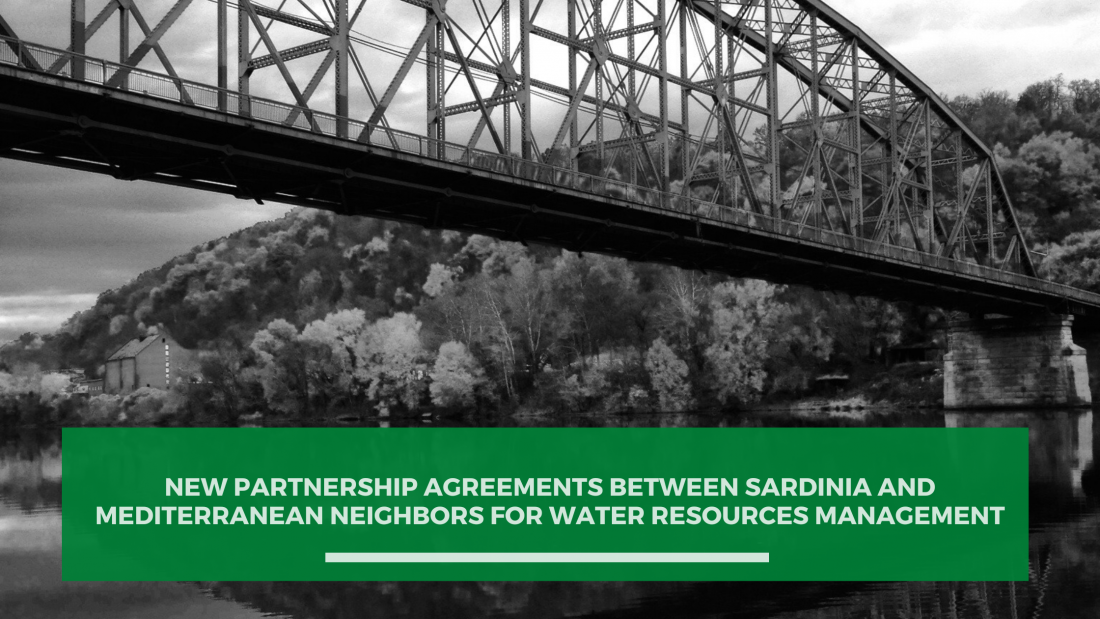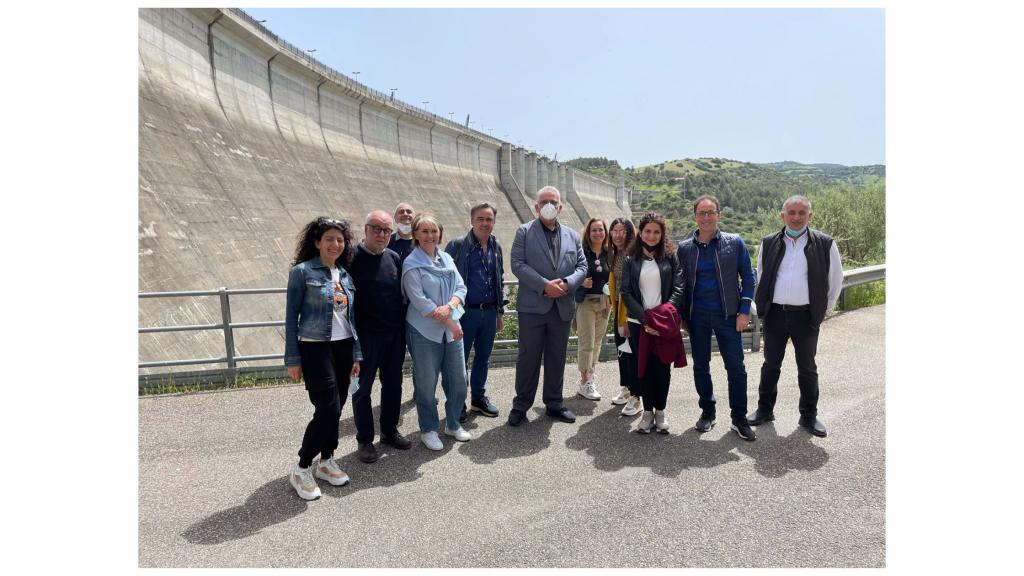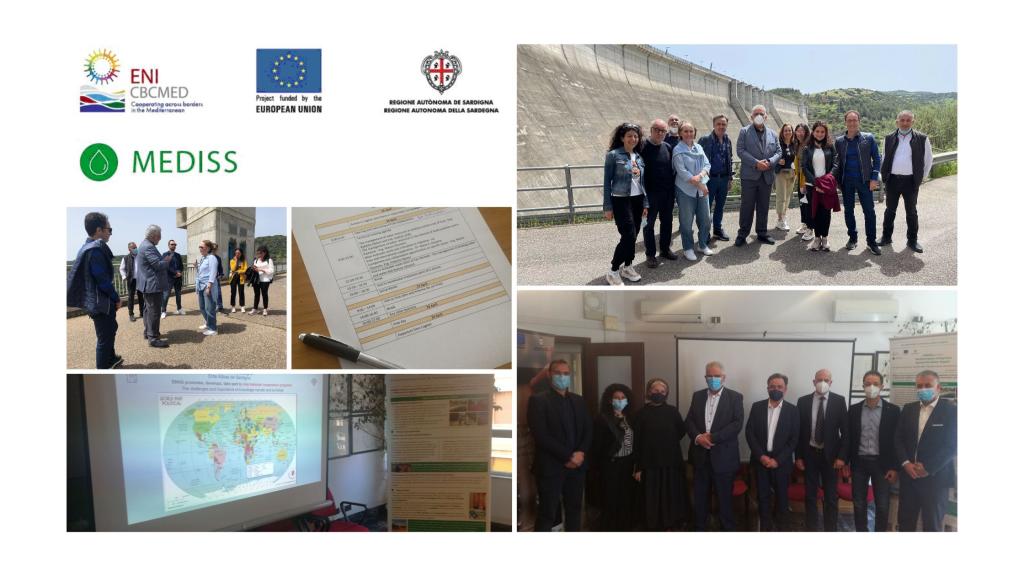MEDISS opens doors to new partnership agreements between Sardinia and Mediterranean neighbors for water resources management

The Arab Water Experts Network (AWEN) delegation carried out a mission in Sardinia from 26th to 28th April. The network President, H. E. Eng. Mazen Gunhaim, Minister of Water of Palestine and Head of Palestinian Water Authority, met the executives and experts of ENAS (Sardinian Water Board).
The meeting agenda included the evaluation of cooperation opportunities, and visits to water infrastructures and plants, including the MEDISS pilot plant in Arborea.

During these years, the MEDISS partners have been working intensely to strengthen relations and cooperation between countries and to disseminate the know-how developed at both technical and management levels. In particular, since the beginning, MEDISS has adopted some specific lines of action dedicated to the dissemination & capitalization strategy for streamlining MEDISS impacts on potential beneficiaries by:
- wide-spreading dissemination: creating awareness and attracting interest and involvement of a vast range of stakeholders;
- transferring results to upgrade innovation systems and practices: as a consequence, the outcomes will allow the enhancement of water efficiency policies and systems on the regional and local levels;
- Sustainable use of results: the results are taken and creatively used by target groups and all the potential stakeholders.
In this framework, the joint work of the Palestinian Wastewater Engineers Group and ENAS has allowed activating the collaboration with the Palestinian Water Authority and AWEN, to sign a cooperation protocol on the occasion of the next MEDISS meeting in Palestine.
Arab Water Experts Network (AWEN)
The Arab Water Experts Network (AWEN), established by the Arab Ministerial Water Council in 2019, acts as an executive arm and professional advisor to the Council itself and as a knowledge platform on technical, legal, and economic aspects of water management in the Arab region.
AWEN will work towards ensuring efficient, fair, and mutually beneficial development, protection of shared water resources, and strengthening cooperation.
AWEN is taking the lead in an initiative for the development of a Hydro diplomacy platform in the MENA region , this platform will be consider as part of its task; increase awareness of , and accession to international conventions and enhance cooperation on trans-boundary water in the region.
One of the main goals of AWENS is to develop a regional monitoring program for all shared water resources in Arab Region and to enhance data exchange by adopting advanced technologies. Of the AWEN future activities is to developing specific mitigation measures for transboundary floods and developing joint early warning systems.
The AWEN Mandates:
- To provide a platform for technical support and legal advice in addition to consultations to AWEN members in a manner that promotes the joint efforts toward achieving water security in the region;
- To become a center of excellence for water-related issues that can be easily accessible by members;
- To utilize the Arab expertise in the diverse fields of water management within the AWEN activities, formulating working and experts groups with clearly defined mandates ;
- To coordinate technical cooperation among AWEN members related to available procedures, guidelines, and conventions (e.g. procedures for data and information exchange and sharing);
- To set procedures for exchanging and sharing data, monitoring water uses, analysis, modeling, and assessment, planning support, forecasting, early warning, emergency mitigation, notifying and consulting with other members about diversions, water transfers and uses of shared waters, maintaining flows and water quality;
- To formulate a platform for water diplomacy and regional cooperation in which Arab states share the benefits of common water resources despite different national interests. It also acts as a regional knowledge hub on water resource management that helps the decision-making process based on scientific evidence;
- To support the development of capacity building programs aimed at increasing the negotiating capacities of Arab countries facing water conflicts, building capacities on regional issues such as mitigation and adaptation to climate change;
- To assess the water shortage in fragile, conflict, and violent situations including the refugee camps, and to support initiatives to improve water sector resilience;
- To contribute to the achievement of peace and stability in the region by promoting dialogue and conflict resolutions among states to achieve fair access to water resources and shared water, by the principle of international water law and conventions.










